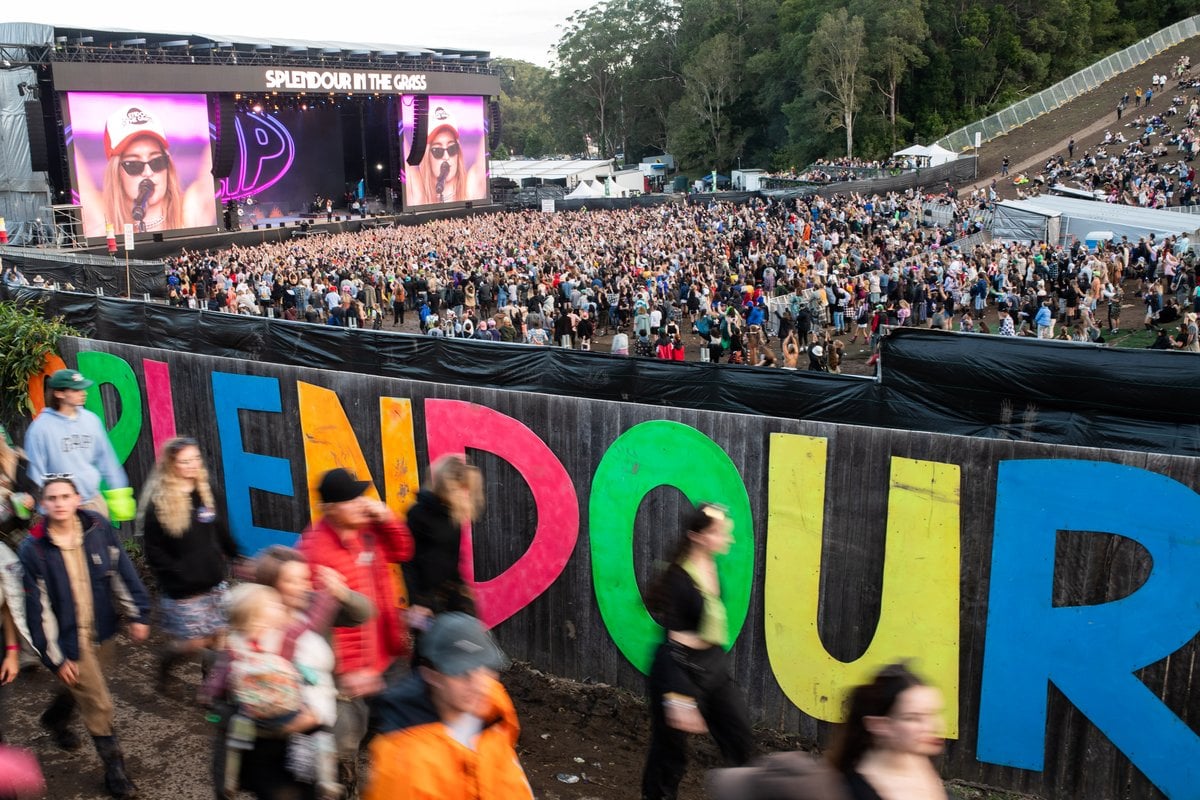
Attending a music festival is a complete and utter delight.
There's a solid artist lineup, fun with friends, a bit of debauchery, creative outfits and a shared love for Australia's live music scene.
But sadly, and I mean very sadly, there's been a sharp rise in Aussie music festivals being canned or not selling out.
Today we've heard the news that Splendour in the Grass has been cancelled, just days after tickets went on sale.
The annual music festival, which is held at the North Byron Parklands in NSW, was due to be staged between July 19 and 21. Tickets went on sale on March 21, with Australian pop superstar Kylie Minogue set to headline — now the 2024 festival has been axed completely.
On Wednesday afternoon Splendour in the Grass released a statement. The decision reportedly came down to a lack of ticket sales.


Top Comments